The first European Charter for Sustainable Tourism business partners in the Baltics
In early February, the Estonian Environmental Board awarded ECST Part II certification to 10 local business partners who are working with Protected Areas to promote and deliver sustainable tourism.
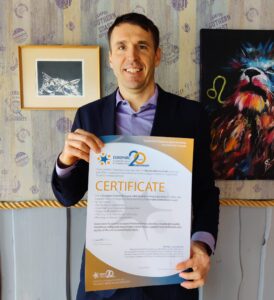
Photo credit: Nele Sõber
The first European Charter for Sustainable Tourism business partners in the Baltics
The Estonian Environmental Board, Keskkonnaamet, is a proud member of the European Charter for Sustainable Tourism (ECST). This year, they celebrated taking the next step with the ECST programme by verifying local businesses to become ECST Part II Partners. The ECST Part II are local business partners who commit to the ethos of this charter and participate in regular meetings to create and implement the sustainable tourism action plan for the Protected Area.
This awards ceremony is the first of its kind in the Baltics and is a big acheivement with 10 businesses certified. EUROPARC celebrates their commitment to continue to support the development of sustainable tourism in Matsalu, Lahemaa and Soomaa National Parks!
Sustainable tourism is Good for Parks, Good for People!
Below you can read about each of the Estonian ECST Part II partners:
Kodade Creative Centre
Business type: accommodation, event centre, tours and events
Kodade works with the Matsalu National Park on a mission to support sustainable, nature-friendly life experiences. They offer an opportunity to connect with nature, through sensory and creative activities, and with culture, through restored historical buildings and localities. Visiting Kodade and the Matsalu National Park is the ideal destination for nature and creativity enthusiasts and every year many are welcomed to take part in the creativity camps, photography training, nature hikes and boat trips and much more!
To find out more, visit their website.
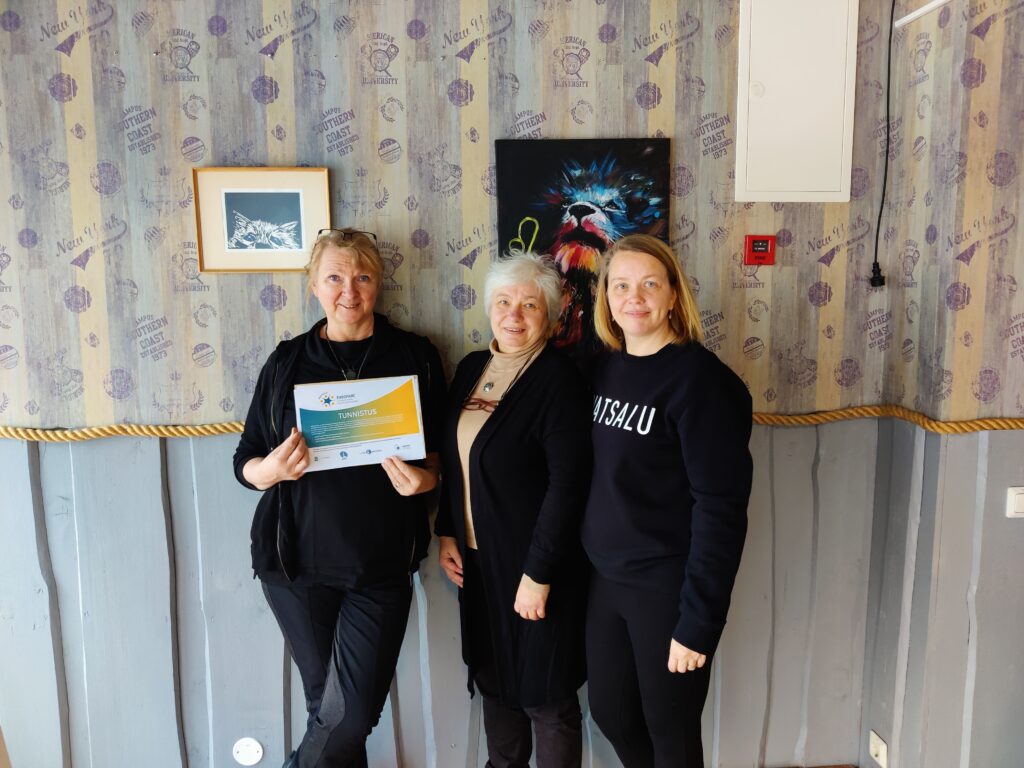
Celebrating the ECST Part II awards with partners from Matsalu National Park. Photo credit: Nele Sõber
Piesta Kuusikaru Farm
Business type: accommodation, culinary & cultural experiences
For over 150 years, the Piesta family farm has been living a life committed to the values of nature and community. The family, who have been caring for this land for many generations, want to share this rich cultural history with visitors coming to the Soomaa region and offer food tasting experiences as well as tours of the sustainable farming and crafting practices. For those looking for a travel back in time, the small riverside cottage with its traditional wood-heated sauna is available for overnight stays.
To find out more, visit their website.
Pure Water Theme Park & Ubari Center of Natural Wisdom
Business type: environmental education and excursions
Water connects us all and at the Pure Water Theme Park, where especially the young can come and learn about nature and how everything is connected. The park hosts many visitors and groups over the year, teaching them through fun outdoor learning experiences. Similarly, the Ubari Centre of Natural Wisdon is a provider of outdoor tours, experiencing nature in all its diversity for many different groups of people. Both are operated by the same company, which is committed to promoting a sustainable lifestyle by fostering a love for nature.
To find out more, visit the Pure Water Theme Park website and the Ubari Cenre of Natural Wisdom website.
Alutaguse Hiking Club
Business type: environmental education and excursions
This hiking club is committed to increasing the quality of outdoor activities by developing good relationships with partners such as the local Protected Areas and improving the environmental awareness of participants, members and customers. The hiking club has more to offer than just hiking, they also run youth camps, training courses for guides, climbing competitions and an Adventure Festival.
To find out more, visit their website.
Lahemaa Ecotourism
Business type: environmental education and excursions
Lahemaa Ecotourism has professional staff who assist local, national and international tourists have a great experience in the Lahemaa National Park and surrounding area. They are committed to providing quality service to their customers while having little to no impact on the environment and positively involving the local community.
To find out more, visit their website.
Lobi Cultural Villiage Museum
Business type: environmental education, culinary & cultural experiences
This museum is located on the Lobi Peninsula, one of the longest in Lahemaa National Park. Here, it showcases the rich cultural history of the local area, exploring themes from nature protection, to traditional livelihoods. As a business, they are committed to supporting the lifelong learning of all visitors through experiential activities, such as tasting the “Northern-Estonian local food” for which the Lobi Cultural Village Museum has a quality label. Similarly, the local staff have an inexhaustable knowledge of the regional and historical culture which they are open to sharing with visitors of all ages.
To find out more, visit their website.
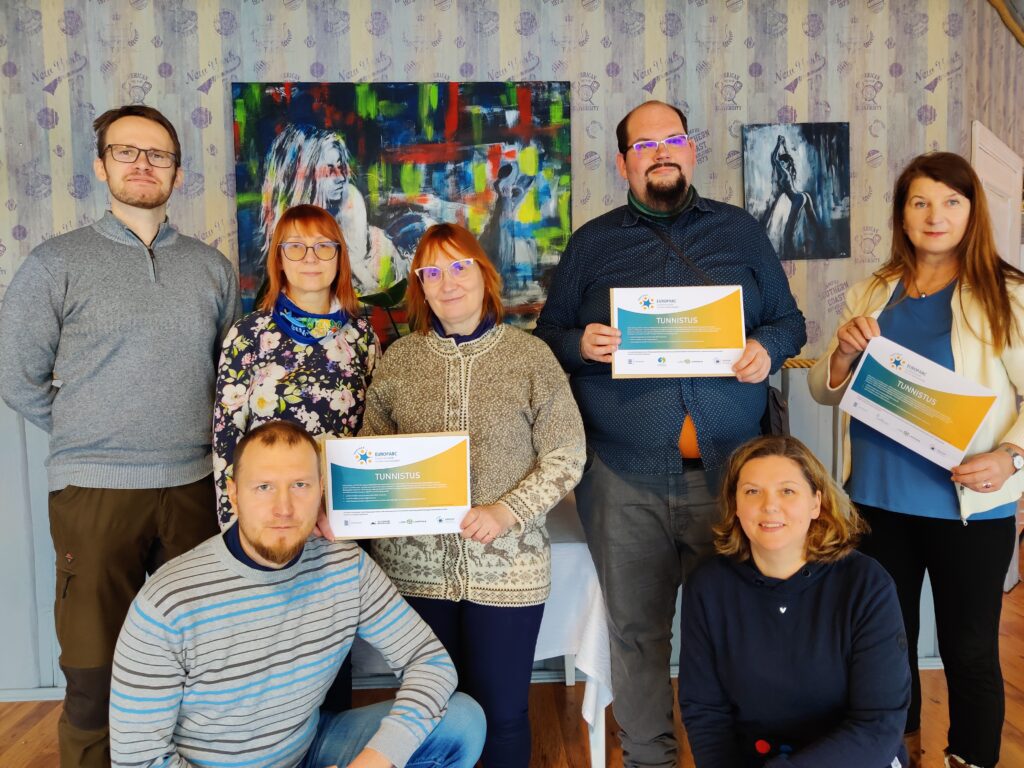
Celebrating the ECST Part II awards with partners from Lahemaa National Park. Photo credit: Nele Sõber
Tipu Nature School
Business type: environmental education & excusions
The Tipu Nature School is an NGO with a mission to connect people to nature. They run the old Tipu schoolhouse, which can be found in Soomaa National Park where they contribute by taking care of a local hiking trail, installing signs in three languages, and caring for a wooded meadow. Not only do they offer camps and outdoor activities, they also have summer volunteer placements highlighting their committment to being a place for learning, exchange and solidarity. In addition to introducing visitors to the natural and cultural heritage of Soomaa National Park region, the Tipu Nature School also strives to foster attitudes and motivation, which drives people to make informed decisions and take responsible action for nature and a sustainable future.
To find out more, visit their website.
Matka-Rebane (which means Hiking Fox)
Business type: environmental education & excusions
Matka-Rebane provides tours out in nature, introducing visitors to the nature in Soomaa across all seasons, showcasing both the natural and the cultural heritage of the landscapes and local communities. They are passionate about connecting people with nature through experiencing emotions while out in nature and using this to promote nature-friendly attitudes and behaviours.
To find out more, visit their Facebook page.
Soomaa Holiday Village
Business type: accommodation, tours and events
You can find the Soomaa Holiday Village on the banks of the Halliste River in the middle of Soomaa National Park. From here, their guests can participate in hiking, canoeing, cycling or relax in the sauna. For the small family-run business, it is important that the guests are familiar and practice ethical and sustainable outdoor behaviour and promote this through a personal approach.
To find out more, visit their website.
Soomaa.com
Business type: environmental education & excursions
This small local nature tourism company has been active in Soomaa National Park for over 25 years. Not only do they provide a plethora of guided tours in all seasons, they also promote cultural heritage through boat building workshops to promote the traditions of local dugout canoes, which were used during regular flooding (known as the 5th season). Their highly capable guides enjoy working with visitors from across the world and provide high quality nature interpretation while hiking, canoeing or snowshoeing.
To find out more, visit their website.
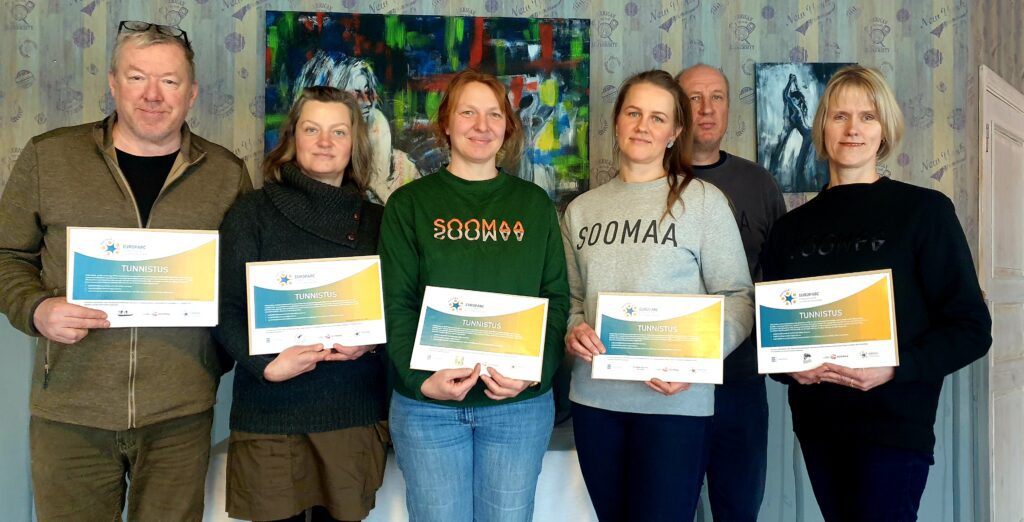
Celebrating the ECST Part II awards with partners from Soomaa National Park. Photo credit: Nele Sõber
Upcoming XII European Charter for Sustainable Tourism meeting
From the 15th to the 19th of May, tourism experts from across Europe will meet in Triglav National Park, Slovenia, to discuss, exchange and learn from each other. Interested to join them and advance your knowledge of how to implement measures for sustainable tourism and visitor monitoring?
Register Here!EUROPARC participates in a Council of Europe consultation on the Climate Crisis and Young People
EUROPARC is active in the Council of Europe in the fields of nature protection, climate change, human well-being and young people.
EUROPARC participates in a Council of Europe Consultation on the Climate Crisis and Young People
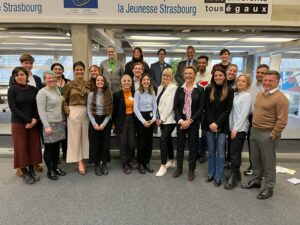
The youth consultation involved young climate activists, youth-led NGO representatives, academia and government representatives
The Council of Europe (CoE) is an International Organisation, which gathers almost all European Countries to promote Democracy, Human Rights, and the Rule of Law. The foreign ministers of all countries meet here to decide on recommendations, which are not legally binding, but they are encouraged to implement these nationally and they are reviewed every 5 years. EUROPARC’s Youth Officer, Jessica Micklem-Kolenic, was invited to participate in a consultative meeting for a recommentation on the 22 – 25 February 2023 in Strasbourg. This recommendation was on the Climate Crisis and Young People and was initiated by young people through the European Youth Department.
Meaningful Youth Participation in the Council of Europe
For over 50 years, the Council of Europe has been leading by example on praticing meaningful youth inclusion. All policies that are about young people, are co-drafted by youth and additionally, young experts are consulted for recommendations concerning them. This work is led by the Joint Council on Youth, which is a decision-making body with half the members from organised youth organisations such as European-wide youth-led NGOs, national youth committees and federations of youth political parties (Advisory Council on Youth or CCJ). The other half of this Joint Council are representatives from governments, specifically the ministries working on young people (European Steering Committee for Youth or CDEJ).
A Council of Europe Recommendation
The Youth Department organised an expert non-formal trainer, Anuschka Ruge, who facilitated the consultation for the recommendation on the Climate Crisis and Young People. Below you can see a visual she created to showcase the roadmap from the initiation phase to the implementation. Once an idea for a recommendation has been presented, approved and the drafting group has been set up, they have the choice to either research the issue to come up with the content and priorities, or to do a consultative meeting. For work with young people, consultative meetings are more worthwhile as the experiences of the youth change rapidly over time and are not often formalised into publications. For this consultation, the attendees were 20 youth climate activists, and representatives from youth organisations, committees and youth political groups, as well as a few academics and goverment representatives.
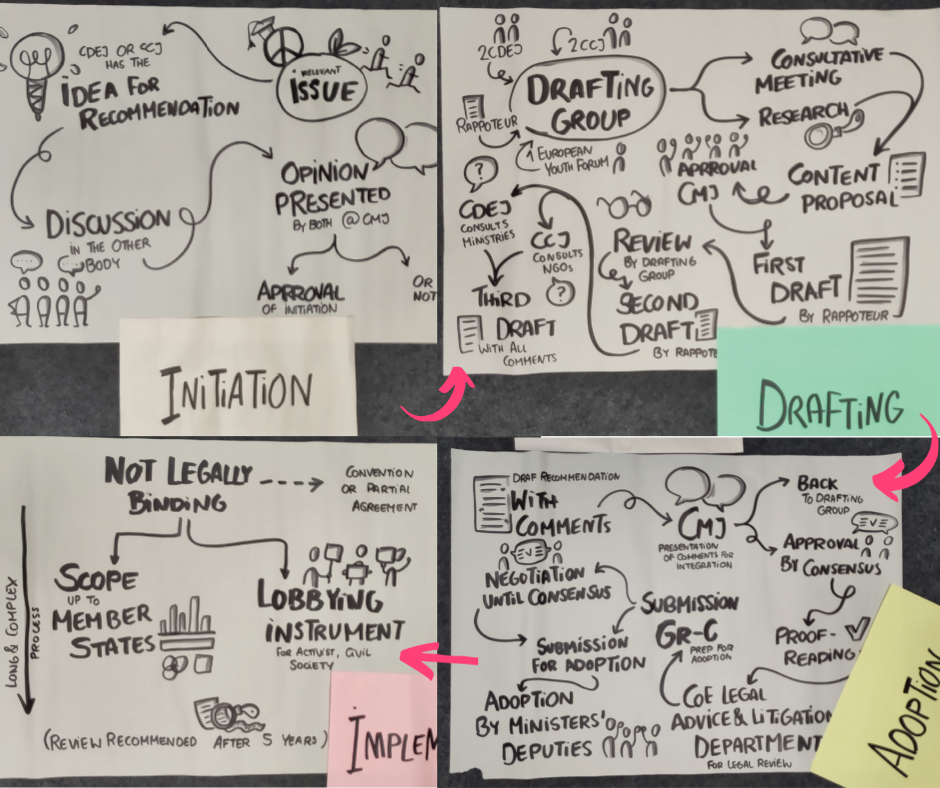
The process for a Council of Europe recommendation
All of this information was shared with the participants of the consultations within the first few hours, setting the scene for the work happening in the background of the Council of Europe. One of the strongest possible legal tools to combat climate change and biodiversity loss is the implementation of the Human Right to a clean, healthy and sustainable environment within the structure of the European Court of Human Rights. Representatives from this Court and the Council of Europe Steering Committee on Human Rights presented their work on the progress os this legal instrument. This information can be found in a previous EUROPARC news article.
The goal of the consultation, was to share experiences and perspectives as well as to prioritize about five points, which could be focused on in the recommendation. While many young people stressed tackling the root causes of the climate crisis, namely the unequal global economic system, the overuse of resources, and valuing economic growth above all else, the recommendations could only be within the mandate of the Council of Europe, namely concerning issues related to Democracy, Human Rights and the Rule of Law, not the economic system.
The Consultation with Young People
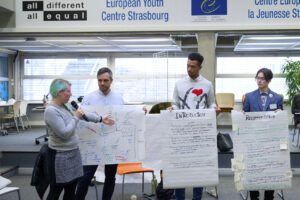
Sharing our ideas after two days of brainstorming
The first task was to dive into the four key priorities of the Youth Sector Strategy for 2023 and share challenges, barriers and opportunities:
- Revitalising a pluralistic democracy
- Access to rights
- Living together in peaceful and inclusive societies
- Youth work
Thereafter the participants ran through a series of brainstorming exercises from which they grouped together concepts and identified priorities. Some of the key points mentioned were:
- Accessible youth participation: including the voices of minorities and disadvantaged groups in democratic spaces
- How do we incentivise climate action: supporting the work on a Human Right to a clean, healthy and sustainable environment as well as changing the measures of success in our economies
- Addressing systemic drivers: implementing a youth-test for policies at all levels of governance to see their impact on young people now and in the future.
- Strengthening the link between climate justice and social justice: acknowledging that we need a socio-ecological transition and discarding language that polarises social issues and environmental issues (especially in funding proposals and budgets).
- Enforcement of previous agreements: respecting the rights of Indigenous Peoples, creating safeguards for environmental Human Rights defenders
- Just Transition: providing more incentives for green jobs in nature protection and climate action
The workshop culminated in a presentation of possible recommendations for the Secretary General of the Council of Europe, Marija Pejčinović Burić, and the Icelandic Foreign Affair Minister, Thórdís Kolbrún Reykfjörd Gylfadótti.
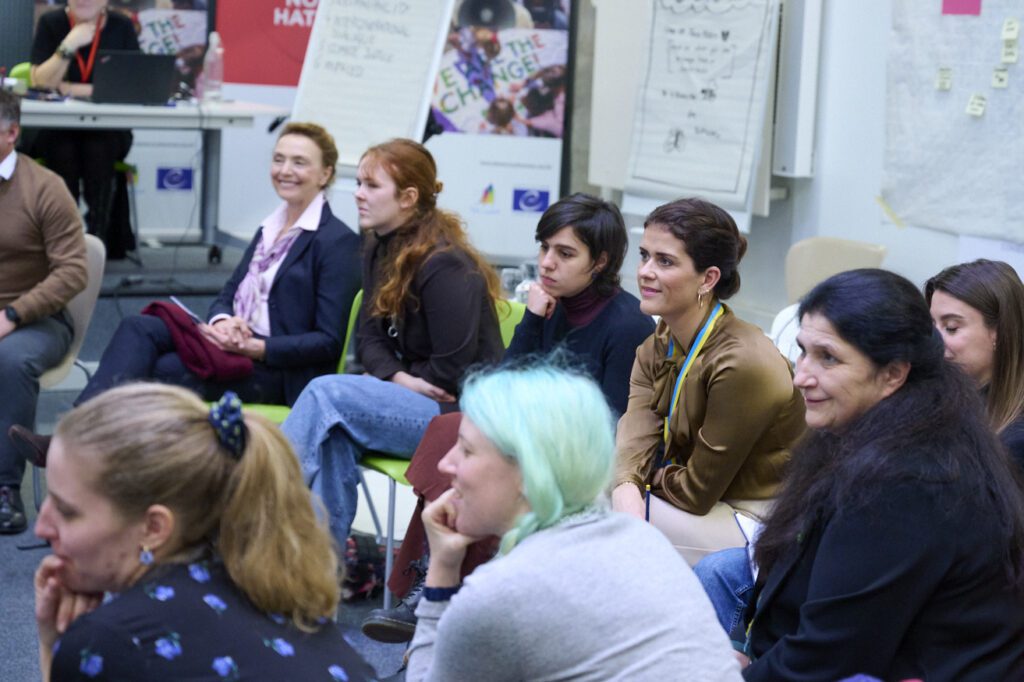
Sharing our ideas with the Icelandic Foreign Affairs minister as the current presidency of the Council of Europe
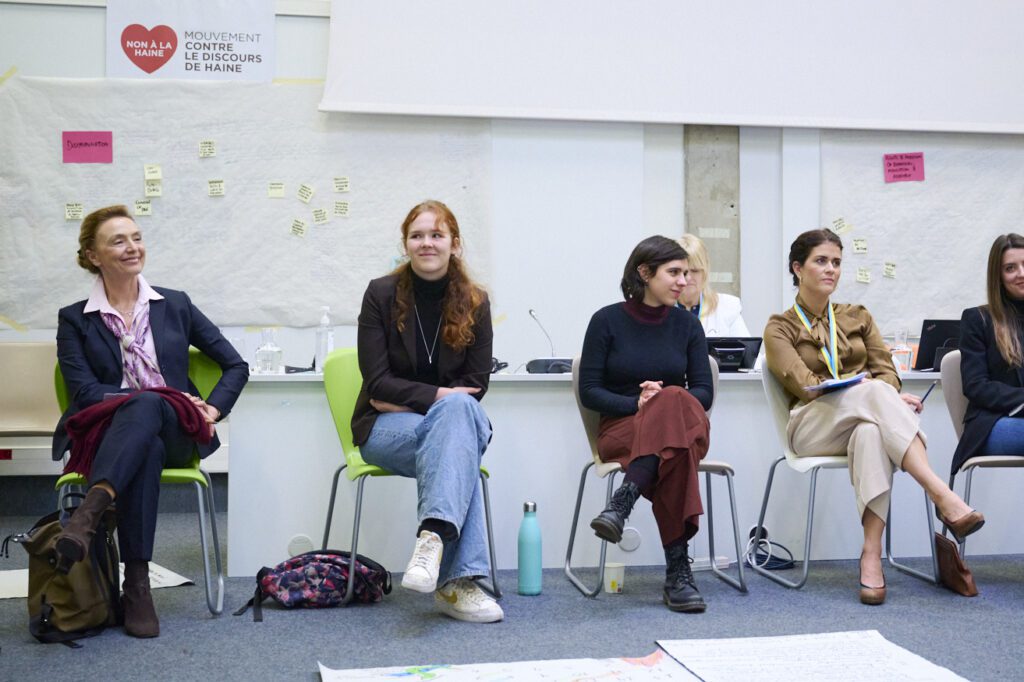
Meeting with the Secretary General (left) of the Council of Europe
The Council of Europe and the Human Right to a Clean, Healthy and Sustainable Environment
EUROPARC advocates for the implementation of the Human Right to a Clean, Healthy and Sustainable Environment and also the Rights of Nature. Below you can read an update of the progress incorporating this into the European legal system.
The Council of Europe and the Human Right to a Clean, Healthy and Sustainable Environment
The Council of Europe (CoE) is an international organisation of all European countries (EU and non-EU, but recently excluding Russia for obvious reasons) to promote democracy and inclusion, human rights, and the rule of law. EUROPARC is actively engaged in this space, advocating for the priorities of Protected Areas across all of Europe.
Last year we published an update on the progress in the United Nations space on acknowledging the right to a clean, healthy and sustainable environment as a human right. The follow up of this decision is for it to be incorporated into national and regional jurisdiction before it can be used as a tool to hold entities accountable for their environmental damage through actions or inactions. Within Europe, there are countries which have or are making progress to incorporate this human right into their constitutions or national law. During an event at the European Centre for Youth in Strasbourg, three speakers presented the progress on the legal aspects on implementing and enforcing the protection and conservation of nature including climate action at the regional level within the Council of Europe.
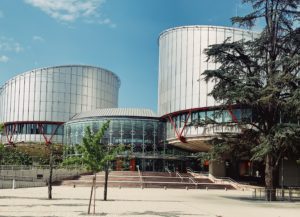
The European Court of Human Rights by Zsófia Vera
The first speaker was Nataliy Kobylarz, a senior lawyer at the Registry of the European Court of Human Rights (ECtHR) and a lecturer on European Human Rights. She presented the progress and challenges of implementing this human right into the ECtHR – which is an international legally binding court to which individuals can bring cases against one or more states.
While in Africa people are guaranteed the right to ‘a general satisfactory environment favourable to their development’ through the African Charter on Human and People’s Rights, and similarly the Inter-American Court of Human Rights recognises the protection of the right to a healthy environment through the American Convention on Human Rights, the European Court of Human Rights is still a few years from the same. This is because it only covers civil and political rights and not cultural and social rights (sometimes called second generation rights and are not enforced by the ECtHR but a smaller committee with less power) which is where the African and American courts drew their argument from.
Currently, to bring a case to the European Court of Human Rights, there has to be a clear event that creates a “victim”. Secondly there needs to be a clear argument that this case could not be solved at a national level. Of six recent cases brought to the ECtHR only three have not been dismissed because of these two previously mentioned conditions. The three that will be seen in court are:
- #Klimaseniorinnen: a group of >64 year olds who are taking Switzerland to court for not doing enough to prevent the heatwaves, which cause health problems in elderly women in particular. This case has been in the works for over 20 years already with more than 45 000 deaths attributed to heatwaves in Europe.
- Carême v. France: a case where a former lawyer is fighting for the “right to a normal private and family life”, which is at risk due to France’s inadequate climate action. Damien Carême, former mayor of the Commune of Grande Synthe in France, had previously had his case seen in the French Court but they dismissed the individual aspect of it and it has now been brought to the ECtHR.
- Duarte Agostinho and Others v. Portugal and 32 Other States: This is also known as the case of the six Portuguese children, which is based on the rights to life, to privacy (which includes mental and physical well-being) and the right not to experience discrimination. This case has been sent to the Grand Chamber.
The first two cases will be seen in the Grand Chamber on the 29th of March and the third is still unknown. All of these are based on previous human rights and having a clear recognition of the human right to a clean, healthy and sustainable environment would be a huge step forward to having environmental cases heard in the ECtHR.
Another legal tool is the Rights of Nature, which have been adopted in a few countries such as New Zealand, Ecuador and Pakistan. This would be a more eco-centric way of using the law to protect the environment than the human right, which always requires a human to be involved. The Rights of Nature would give legal personhood either to Mother Nature, to an ecosystem/feature (such as a river) and they would be represented in court by an ombudsman. However, in the current scope, it does not seem possible for the European Court of Human Rights to include the Rights of Nature into its procedures.
Secondly, David Milner, head of the Steering Committee for Human Rights (CDDH) at the Council of Europe, shared the work that has been done so far. In the 2021 manual, the latest edition from the CDDH, it states that:
The Committee of Ministers recommends that the governments of the member States reflect on the nature, content and implications of the right to a clean, healthy and sustainable environment and on that basis, actively consider recognising it at the national level
This doesn’t actually require them to recognise the human right but only to “reflect on the nature, content and implications” because there is no agreed definition of how the right will be implemented. While it may seem discouraging, he went on to share that change in the hard laws with obligations were often preceded by soft laws such as in recommendations, and that the Council of Europe was at the “soft law stage” but actively considering the next stage. Currently there is a feasibility study to be completed in 2024, which will look at many aspects of the implementation of a possible hard law on the right to a clean, healthy and sustainable environment.
One of the “soft law” approaches is by using the Bern Convention and the Landscapes Convention, which protect natural areas and landscapes across Europe for their inherent value as well as their benefits to us. The last speaker, Gianluca Silvestrini, head of the Biodiversity Division of the Council of Europe explained how the Bern Convention uses the soft law approach to have a case-file system for complaints with the following procedure:
- civil society can file cases of breaches with the Bern Convention Secretariat
- an explanation from the government is requested
- the Bern Convention standing committee calls for an independent analysis
- mitigation measures are recommended
- the Bern Convention Secretariat monitors implementation
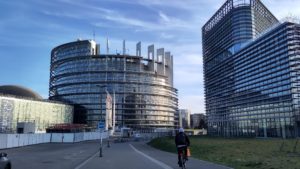
The European Parliament in Strasbourg
This system is not legally binding and additionally, funding for the Bern Convention Secretariat has shrunk by 85% in the last 25 years, something that the International NGO Committee chaired by EUROPARC, has been trying to draw attention to through a letter to the Secretary General to the Council of Europe.
Nevertheless, there is hope for more action in the environmental space. Iceland currently has the presidency of the Council of Europe and one of their top priorities is Climate Change. Additionally, in May there will be the Summit to discuss the future direction of the Council, which is an important occasion as these summits are only held every 20 years. EUROPARC will continue to work with and through the Council of Europe, its conventions, the INGO Conference and the ECCH&H Committee to develop an integrated approach between human rights, environment, heritage and health.
Communicating your youth work: Data protection, safeguarding and increasing visibility
Communicating your youth work: Data protection, safeguarding and increasing visibility
- EUROPARC Webinar
- 06.03, from 14:30 – 16:00 CET
- Attendance is free, but registration is necessary
Showcasing the importance of involving young people in Protected Areas is crucial to influence perceptions of decision-makers, local cummunities and colleagues. In this webinar, we have three experts sharing their knowledge with you, to grow your confidence and help you increase the visibility of the work you do with young people in Protected Areas through school visits, family days, the Junior Ranger and Youth+ Programmes, in a safe and compliant way.
Our first speaker, Ilaria Pizzini, a compliance expert from Italy, will introduce us to the data protection regulations. After this presentation, everyone should feel comfortable, knowing how to be mindful of data protection and what goes into a parental consent form.
Our second speaker, Lou Willis-Keeler, is the CEO of Psych-Logical LTD, a consultancy advising organisations in the UK on how to work with young people. For this session, she will be sharing the every-day human experiences of communicating with young people to ensure everyone feels safe and is aware what to do if they don’t.
Our last speaker, Franciska Maarse is a communications officer from IVN Natuureducatie in the Netherlands. She will be sharing many tips and tricks to help you increase the visibility of environmental education across different platforms.
Join the webinar to learn, ask questions or share concerns and experiences. We welcome you to share this invitation with your colleagues.
Webinar Programme
Welcome and Introductions
Jessica Micklem-Kolenić, Youth Officer at EUROPARC Federation.
Youth and Data Protection: Rules, Tips and Tricks
Ilaria Pizzini, Data Compliance Expert
Q&A
Creating a Safe Space for All
Lou Willis-Keeler, CEO of Psych-Logical LTD
Q&A
Increasing and Improving Visibility
Franciska Maarse, Communications Officer, IVN Natuureducatie
Q&A
The webinar will last 1.5 hours
About the speakers
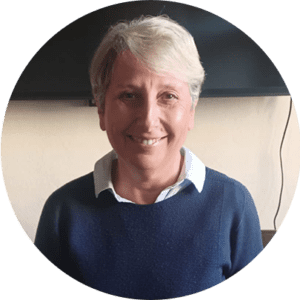
Ilaria Pizzini, Data Compliance Expert
Ilaria has worked for many international organisations and industries, i.e. Coop (Modern Retailing), Xerox, Datamat, Digital Equipment (Information Technology), and in particular in UNICEF Italian NatCom where she managed the transition from Italian privacy regulations to the EU’s General Data Protection Regulation (GDPR) from the perspective of processes, systems, procedures and documentation. She holds a Masters degree from LUISS Business School in Governance in Privacy, is a qualified Data Protection Officer with much experience in both human resources and complaince (including, data protection, safety and security etc.).
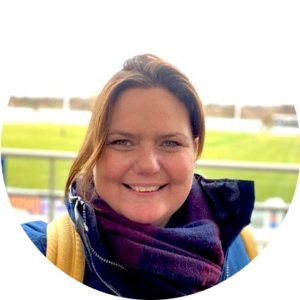
Lou Willis-Keeler, CEO of Psych-Logical LTD
Lou is a specialist safeguarding and behavioural change consultant, working in the informal education sector. With over 20 years practice based experience and a Masters Degree from Durham University in Community and Youth Work, Lou works with organisations to help them create safe spaces for teaching and learning, improving engagement and increasing impact.
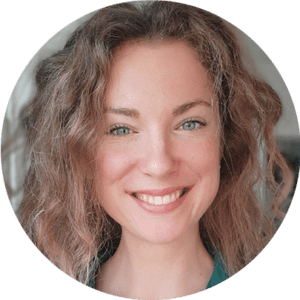
Franciska Maarse, Communications Officer, IVN Natuureducatie
Franciska is the communications officer of IVN Natuureducatie, a non-profit nature education organisation based in Amsterdam. She focusses on communication around youth programs of all ages and has a background in sustainable behavior change and psychology. Her passions include writing, designing, storytelling (and when out of the office; singing).
